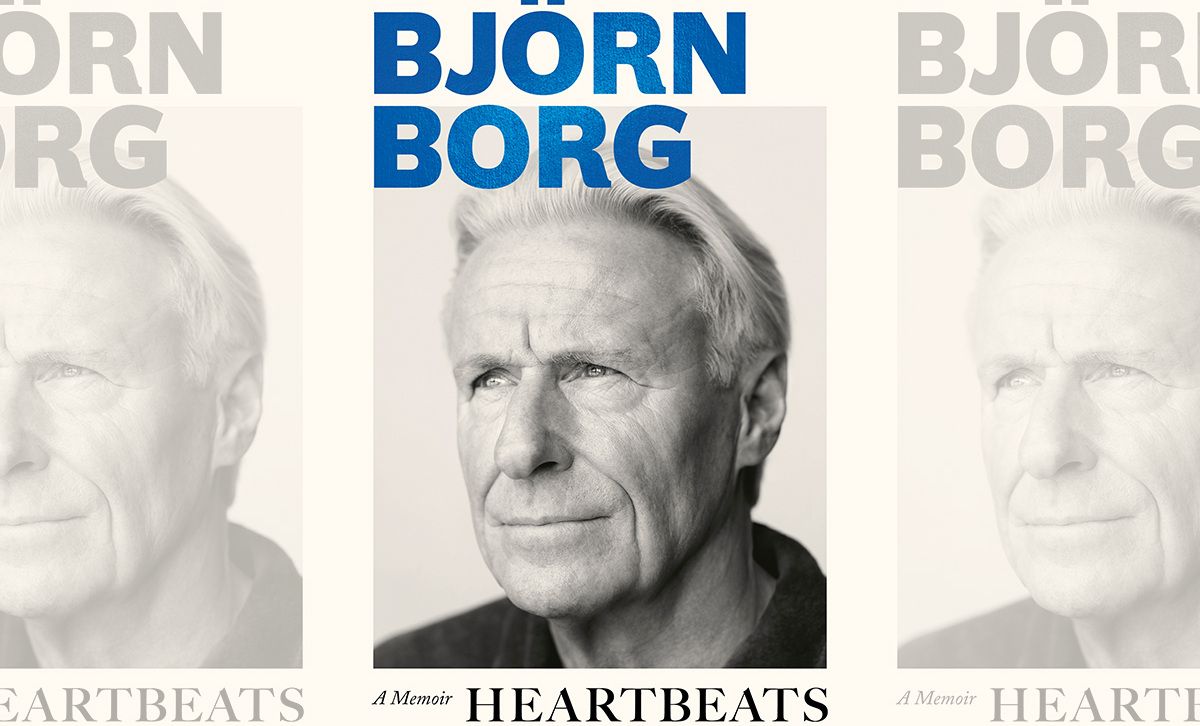
For decades, Björn Borg has been tennis’s most mysterious icon, a man of few words, great silence, and 11 Grand Slam titles. Now, in Heartbeats, A Memoir, the Swede finally breaks that silence.
Told to his wife, Patricia Borg, the book is a remarkably intimate and candid reflection on the life of a player who changed tennis, vanished from it at 26, and later found his way back through new ventures, including a celebrated return to the court as captain of Team Europe at the Laver Cup.
Borg grew up in Södertälje, south of Stockholm, the only son of Rune and Margareta Borg. “It was the three of us. Always,” he writes. “A tight family with my mum Margareta at the helm.” From the start, sport was in his blood — tennis and ice hockey were his twin passions. The turning point came at nine, when his father gave him a prize he had won at a local table tennis tournament: a tennis racket. “That was the day tennis really entered my life,” Borg recalls. “The racket was too heavy for me, so I had to use both hands for both backhand and forehand.” It was a style of play that was to become popular for future generations and led to Borg’s metronome accuracy from the baseline.
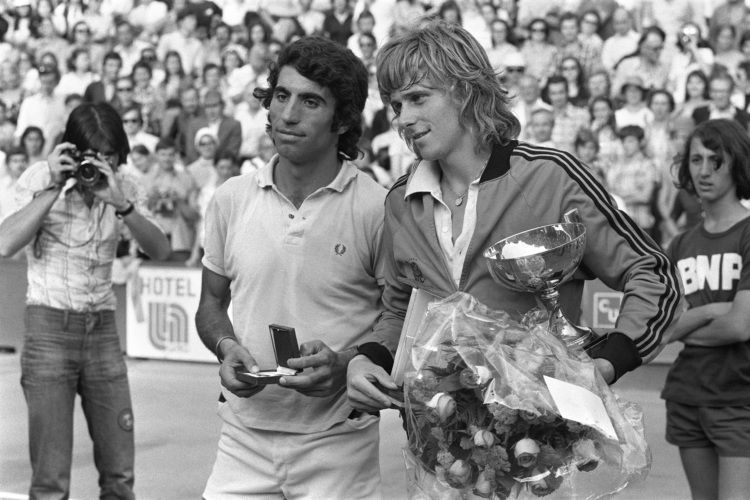
The book’s early pages hum with the rhythms of practice and persistence: a boy hitting against a garage door, dreaming of Wimbledon and Davis Cup glory representing a country that had never been regarded as a tennis powerhouse. When he was punished for throwing his racket at 12, Borg vowed never to lose his temper again. “It gave me a special kind of strength in difficult situations,” he writes. The “Ice-Borg” persona that defined his public image was not innate Scandinavian cool — it was the armor of a shamed child.
Heartbeats follows the astonishing rise that came next: junior Wimbledon champion in 1972, the youngest player ever to win a Davis Cup match at 15, and by 1974, a French Open champion at 18. There are wonderful touches of humor. Borg recalls his first US Open match in 1972, where he was irritated by a “completely useless” ballboy who couldn’t throw properly. That boy turned out to be John McEnroe, the fiery American who would become his greatest rival and, later, one of his dearest friends.
Borg writes movingly about their epic Wimbledon and US Open finals, and how McEnroe’s victories in 1981 marked both an ending and a beginning for the Swede. After that US Open loss, Borg walked away from the game. “Everyone wanted a piece of me,” he writes. “I put on a smile because I knew what was expected of me. I knew how to play the game.”
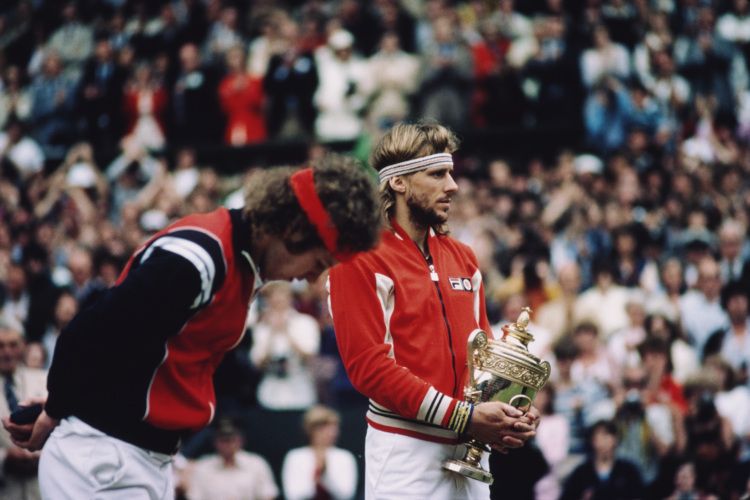
The memoir reveals not just the cool champion but the conflicted man behind him: the shy introvert who dreaded interviews, the restless celebrity lured by parties and business ventures, the husband and father searching for balance. He craved privacy and feared being alone.
John and I are both proud of what we built, that we helped create and grow this unique tournament. – Bjorn Borg
Borg’s devotion to training never left him, nor did his love for his family and his sons, Leo and Robin. It was through the Laver Cup that Borg reconnected most joyfully with the sport that made him. “Being captain of Team Europe,” he says, “was the most fun role I’ve had to take on in my post-tennis life.” He recalls sitting in the sun in Ibiza when Roger Federer and his agent Tony Godsick invited him to take the helm of Team Europe — an invitation he accepted instantly. “Partly because I got to spend time with today’s tennis stars, hanging out with them for a full week, and partly because I got to feel that competitive edge again, the hunger to win.”
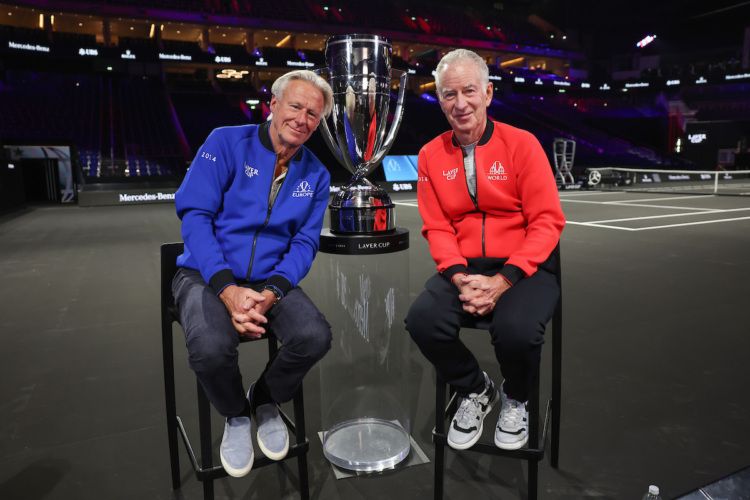
That old rivalry found new life when McEnroe was named captain of Team World. “It became even more serious when John McEnroe signed on as captain of Team World. Two stubborn competitors facing off again, this time as coaches,” Borg writes. “We had seven great years with the Laver Cup, and to John’s annoyance, Team Europe won five of them. John and I are both proud of what we built, that we helped create and grow this unique tournament.”
For Borg, the Laver Cup became a full-circle moment — the disciplined prodigy who once shunned the spotlight now sitting courtside to support players like Federer, Rafael Nadal, and Novak Djokovic.
As Heartbeats draws to a close, Borg’s reflections are serene, almost spiritual. He writes of a guardian angel tattooed on his arm, a symbol of the quiet faith that has followed him throughout life. “Self-discipline runs deep in me,” he says. Now 68, he weighs the same as he did in his twenties and keeps a strict routine of sleep, diet, and exercise. He dreams of climbing Mount Everest but is happiest in Ibiza with Patricia, sharing a life filled with simple pleasures. “These days, I’m more careful with my life. I don’t want to risk anything anymore. I just want to have peace and be able to live.”
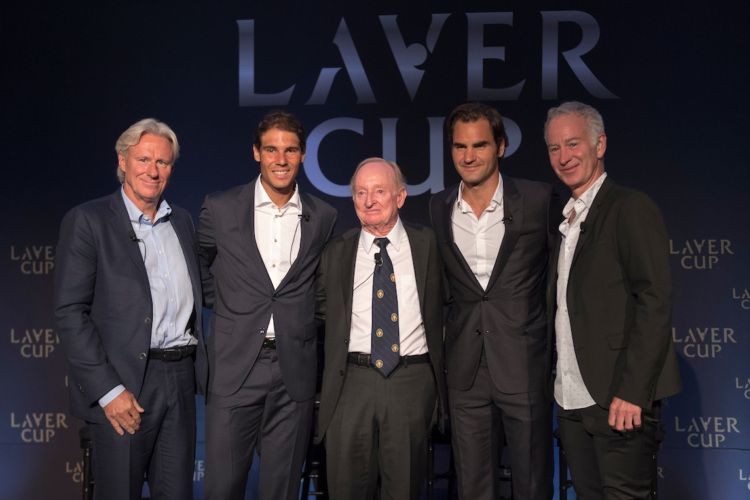
In Heartbeats, Björn Borg gives us more than a sports memoir — it is a confession, a reckoning, and ultimately, a love story: with tennis, with life, and with the quiet power of endurance. For those who watched him glide wordlessly across Center Court, and for the generations who rediscovered him courtside at the Laver Cup, this is the heartbeat behind the legend.
Heartbeats, A Memoir is published by Sphere.
Purchase in the UK
Purchase in the US